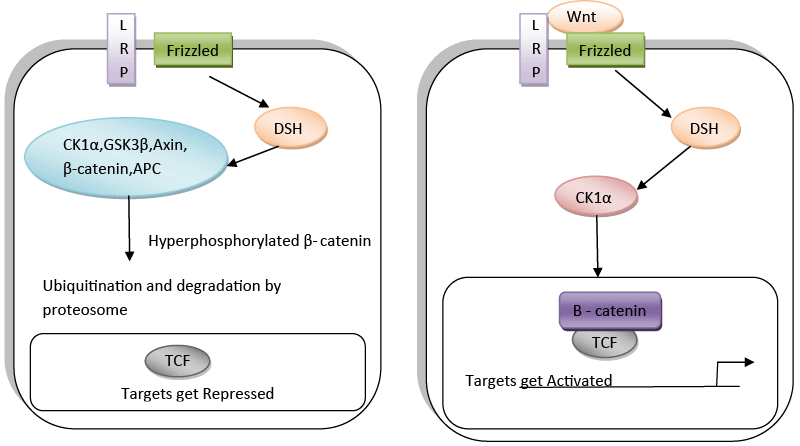
 |
| Figure 1: A simple schematic representation of Wnt-pathway with or without Wnt signal (a transmembrane protein). In the absence of Wnt signal (left panel), action of the destruction complex (CKIα, GSK3β, APC, Axin) creates a hyperphosphorylated β-catenin, which is a target for ubiquitination and degradation by the proteosome. Binding of Wnt ligand to a Frizzled/LRP-5/6 receptor complex (right panel) leads to stabilization of hypophosphorylated β-catenin, which interacts with TCF/LEF (T-cell Factor/Lymphoid Enhancer-binding Factor) proteins in the nucleus to activate transcription and trigger tumorigenesis. Dishevelled (Dsh) is a family of proteins involved in canonical and non-canonical Wnt-signalling pathways. Dsh is a cytoplasmic phospho-protein that acts directly downstream of Frizzled receptors. In the canonical pathway, CKIα, GSK3β, APC, and Axin act as negative regulators and all other components act towards positive regulation. It is widely accepted now that constitutive activation of Wnt signaling caused by mutations in the components of this pathway is responsible for initiation of Colorectal Cancer [7]. |